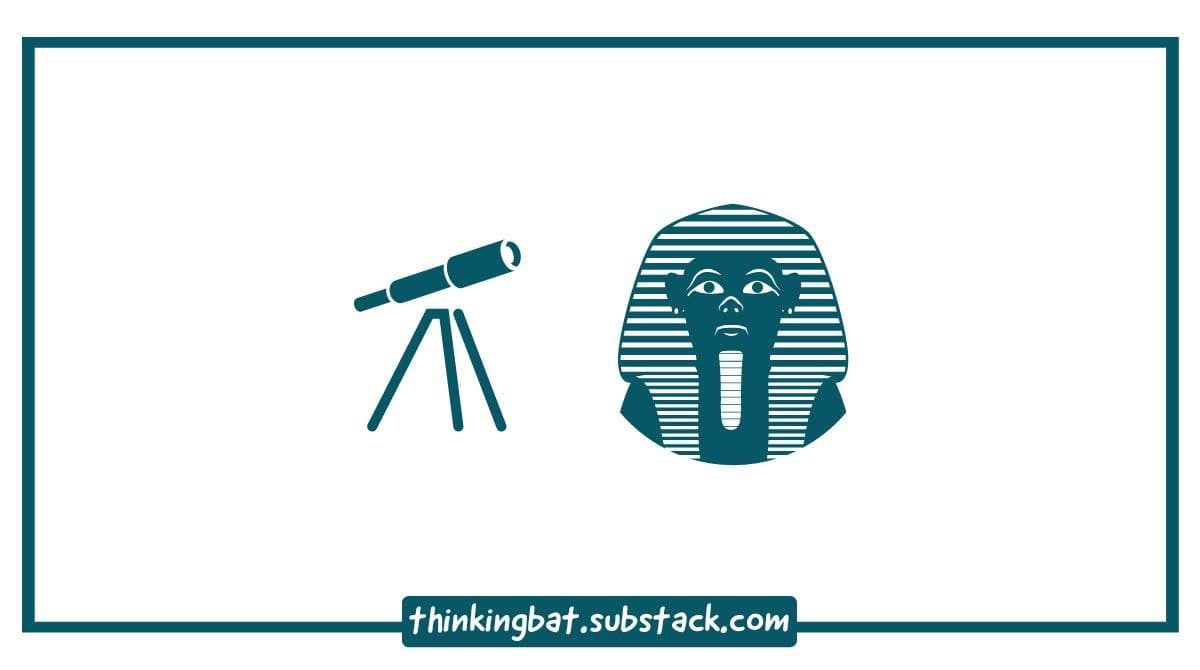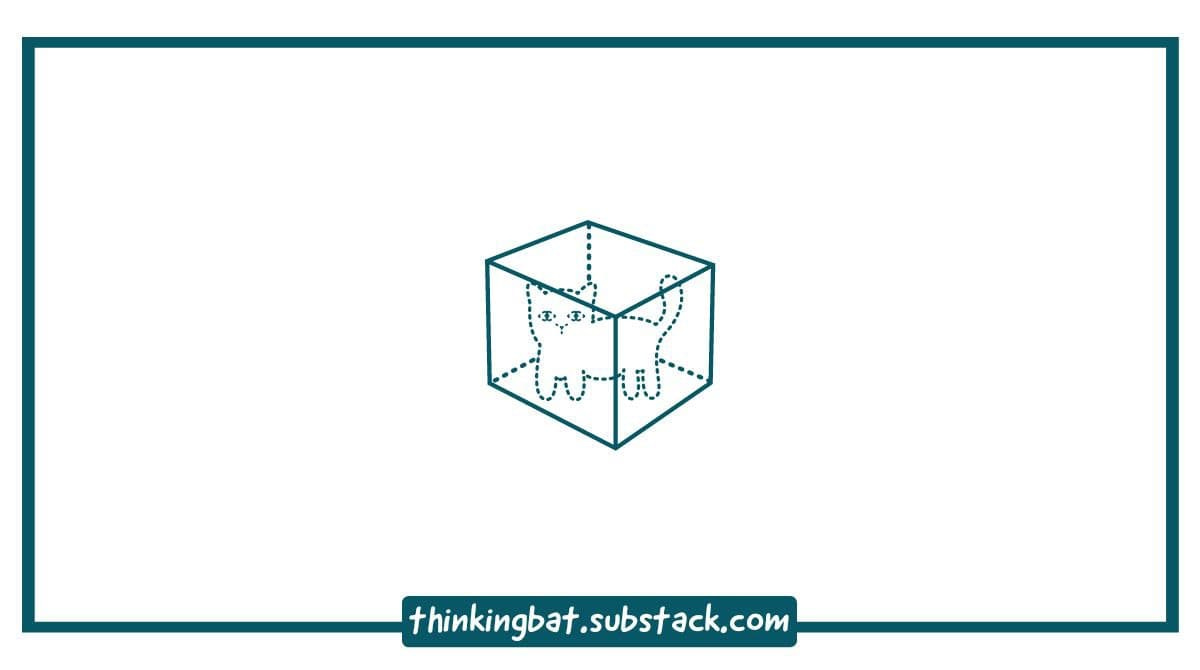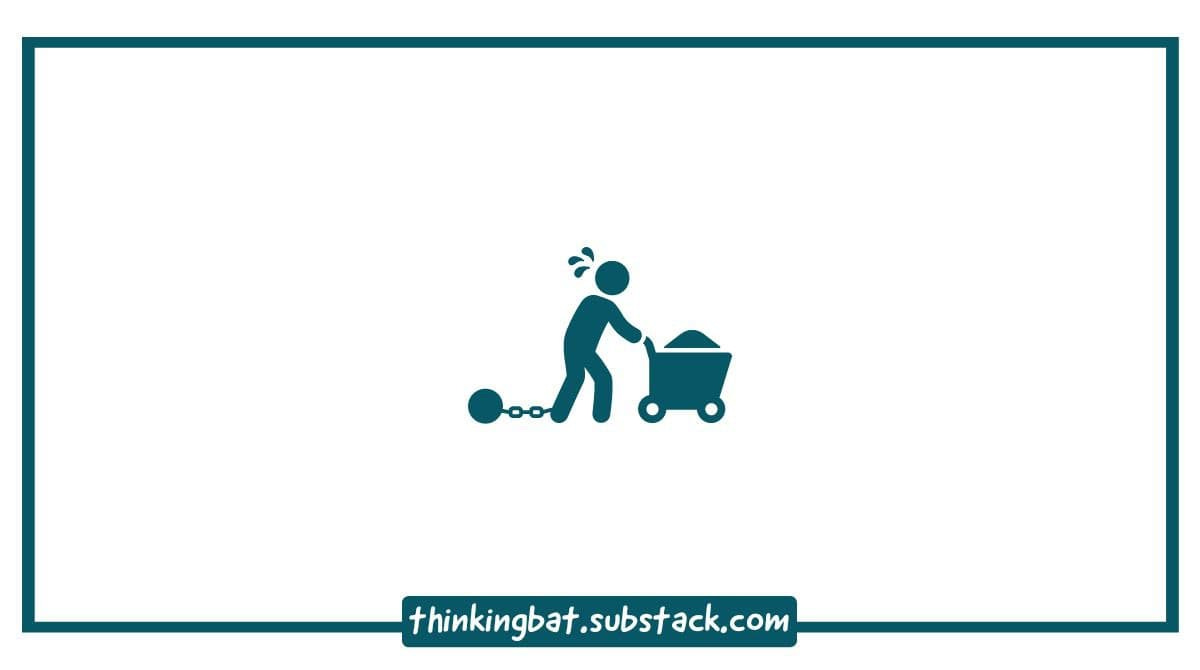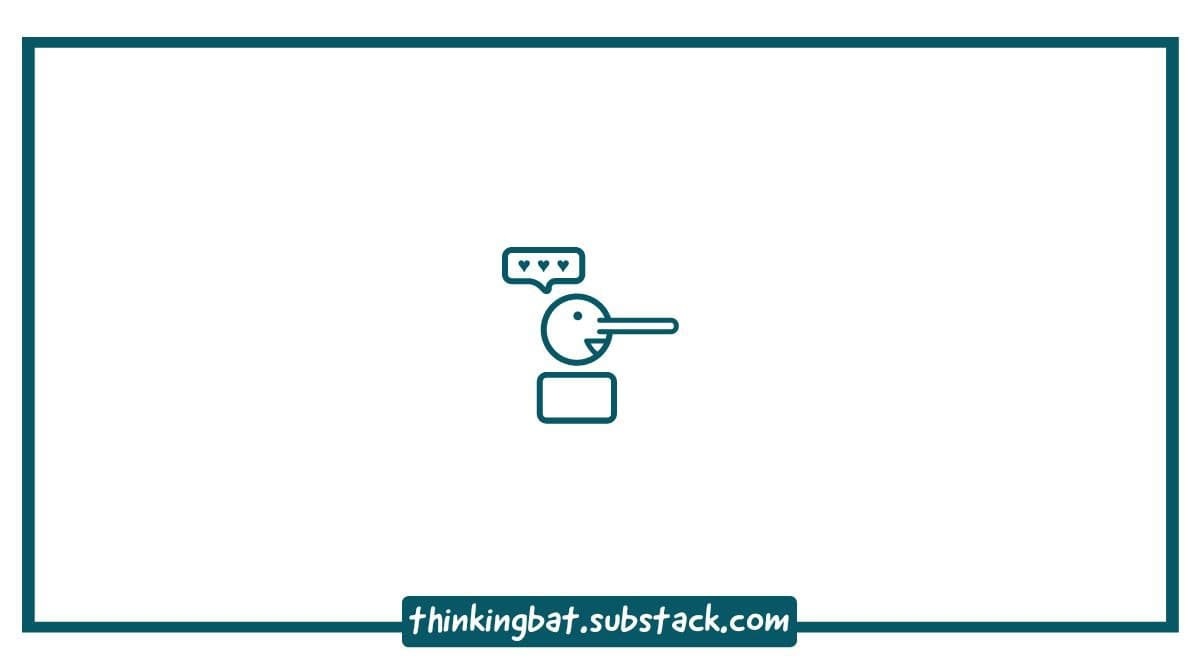Few words before we go ahead with this essay: I think I owe you an apology for not publishing anything for the last three weeks. I was busy as it was my sister’s wedding, and I hope you are aware of how preparation goes at Indian weddings.
The good news is that I am over with that phase of everyday exhaustion, ready to put out some more ground-breaking contrarian wisdom.
I hope this 1300+ words essay will satiate your hunger. A small heads up before you start: this one’s going to be a little controversial and might offend a few of you.
With the dawn of modern science, humanity started to lose its faith in God. A lot of things that we believed to be controlled and created by him turned out to have a very sophisticated chain of reasoning.
We used to believe that God is responsible for the sunset and sunrise, but soon we discovered that it is due to a change in the relative position of Earth and the Sun. God was erased out of this picture entirely.
We thought the seeds turn into trees by the grace of God, but after William Beal’s groundbreaking discovery — the result of a 142-year-old experiment — we came to know about Germination. The disbelief in God grew strong.
The biggest blow to God’s existence was Darwin’s contribution to science. The birds, horses, daffodils, and lions were no longer an act of absolute creation but rather a result of gradual progress made on the matrix of random luck.
God is dead, and science killed it. None of us was ready for what happened after that. Everything about human society changed.
The Silent Observer Vs The New God
The more science progressed, the more we became doubtful of God’s contribution to the functioning of this world. From the helmsman of this world, he turned merely into a silent observer.
With the progress in medicine and anatomy, we learned to cure the incurable.
With the advent of fire extinguishers, we learned to control the uncontrollable.
With the invention of spacecraft, we learned to explore the unfathomable.
Name one species on this planet that can even think of achieving any of it.
The biggest takeaway from all this scientific progress? — Humans have more control over the world than God himself. With time we figured out that the problems he seemed to be agnostic about were not that difficult to solve.
Modernity made man the new God.
The Paradox of Power
The more you profit from something, the more you try to control it, consequently disturbing the natural harmony it was functioning in to produce those profitable results.
You must have heard the story about the goose that laid golden eggs. It’s a classic example of the paradox of power.
In case of dictatorships, revolution by the oppressed citizens kickstarts the paradox of power.
The lesson is simple — the more you try to control certain things, the less profitable/resourceful they become. Not all things, but at least a few of them.
For instance, human-made fertilizers and pesticides increased the crop yield by hundred times. Not only that, they made the soil even better for the subsequent crops.
Looking at this example and many other facets of life, it is assumed that intervention improves the productivity and health of all systems. But we will discover later in this essay that intervention is not always helpful.
Powerless Gods
Science and technology made it easier for us to control the world we live in.
Quite paradoxically, this gain of power, this realization of the fact that humans can fix everything, made it easy for the authoritarian powers to get a foothold.
The delusion of control turned us into blind fools, making us believe everything in the name of academic credibility.
You might think that science empowered us. But for the most part, it made them ignorant. Why bother reading a research paper that's behind a paywall when you can trust that news article which cited it.
The truth is that it's very easy to manipulate scientific studies to create favorable results. Media publishes research that gets more jaws gaping. That's something I've discussed at great lengths in one of my previous essays— The Four Horsemen of Science.
You cannot trust something just because a science paper said so. You will have to do your own research. Most people don’t do that. They never gain the courage to question the mainstream narratives. Science didn’t make man the new God, man made Science the new God.
In the coming sections, we will take a look at instances of negative intervention in certain systems. How our belief in modernity and science made us ignorant to some of the most apparent side-effects of their existence.
The Lies of Medical Science
When you visit a doctor, you usually agree to his diagnosis.
You take the diet plan, buy the prescribed medicines, and avoid doing things he asks you not to do.
Even if you don't do any of them, you believe that his advice is constructive. You rarely question and doubt him.
Why?
Because he is an expert and has a medical degree.
Progress in medical science indeed increased the life expectancy rate. It helped us fight so many deadly infections and viruses. We all know that.
What we don't know is that the same healthcare industry is rigged with wide loopholes.
Here's a small snippet taken out from Nassim Taleb's book Antifragile:
Medical error still currently kills between three times (as accepted by doctors) and ten times as many people as car accidents in the United States. It is generally accepted that harm from doctors—not including the risks from hospital germs—accounts for more deaths than any single cancer.
He’s not lying. A study conducted in 2016 suggests that medical errors are now the third leading cause of death in the USA.
He believes that the healthcare industry encourages us to receive overtreatment to reap off as much cash as they could.
According to Taleb, the decision-making process in the medical industry is outdated, as they intervene in medical conditions where they shouldn't— where leaving the system to fix itself on its own would be more helpful.
The story is quite similar when it comes to the Pharmaceutical industry. Tricking us into buying more medicines and selling overpriced drugs.
All of this data begs for the question: can we really trust the healthcare system?
If you're looking for it in Taleb's wisdom, the answer is a big bold NO. He believes that you should consult a doctor only when you have a fatal injury. Your body will take care of itself in most cases.
Let’s jump into another system that was disturbed by our desire to control it.
Traffic Signs
In the Netherlands in 2003, a “counterintuitive traffic engineer” named Hans Monderman proposed removing traffic lights in the interest of what he called shared space.
When his theory was put to the test, the results were extraordinary, and they led to a series of “red-light-removal schemes” across Europe and America.
Here is an excerpt from an interview of Monderman:
with the observation that, when an electrical failure incapacitated traffic lights, the result was improved flow rather than congestion. As an experiment, he replaced the busiest traffic-light intersection in Drachten, handling 22,000 cars a day, with a traffic circle, an extended cycle path, and a pedestrian area.
In the two years following . . . the number of accidents plummeted to only two, compared with thirty-six crashes in the four years prior. Traffic moves more briskly through the intersection when all drivers know they must be alert and use their common sense, while backups and the road rage associated with them have virtually disappeared.
Monderman likened it to skaters in a crowded ice rink who manage successfully to tailor their movements to those of the other skaters. He also believed that an excess of signage led drivers to take their eyes off the road, and actually contributed to making junctions less safe.
Monderman believed that drivers become more alert and cautious when there is more uncertainty on the road. So basically, intervening with the traffic system made it worse. On the other hand, removing the element of intervention made it more strong.
Final Words
The world is a paradoxical place, efforts to make systems better might not always produce desirable results. Sometimes it’s better to leave them and recover on their own.
The death of God gave us the delusion of control, but under that delusion lies the truth of randomness.
Remember that this essay is not about the healthcare system, road networks, or even science. It’s about chaos. It’s about the things that gain from disorder. It’s about the antifragility of certain systems—those systems can be anything from education to athletics to business and leadership.
The framework is the same, the system you apply to can be anything.
This one to the upsides of chaos.
See you next week.
Appreciate your patience and dedication to reading this long essay. I am glad that you made it to the end. Hope you learned something new that will equip you to make better decisions in your business and life.
I have been running this newsletter for the last thirteen months, sharing the bits and pieces of my intellect with thousands of readers every month. If you want to support this newsletter, buy me a coffee.










Super interesting post buddy!